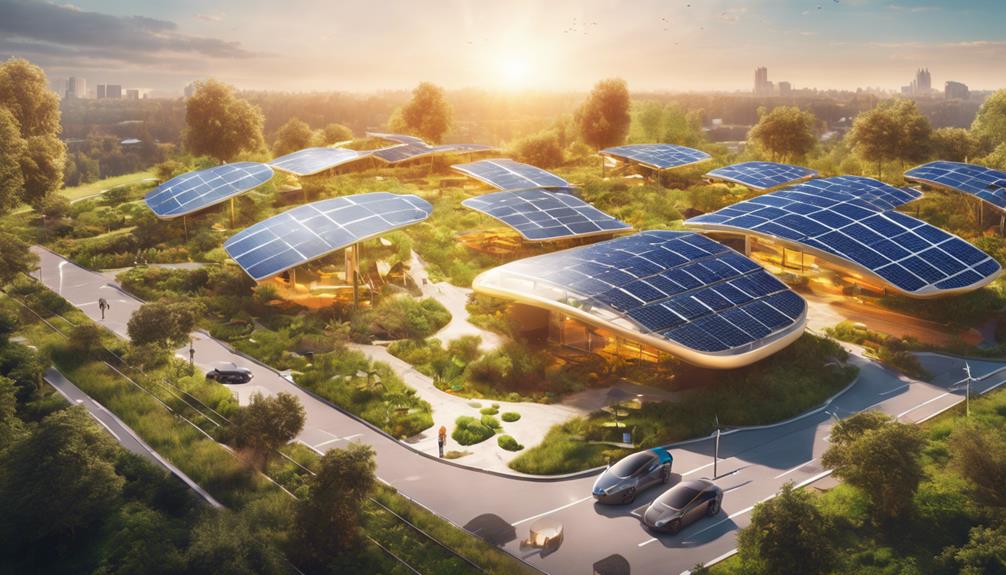
In recent years, the conversation around renewable energy has gained significant traction, and for good reason. Among the various renewable energy solutions available today, mini solar panels have emerged as a popular choice for both residential and commercial applications. These compact solar systems provide an efficient way to harness solar energy, making them an attractive option for those looking to reduce their carbon footprint and energy costs. In this blog post, we will explore the benefits, applications, installation processes, and environmental impact of mini solar panels, as well as how they can contribute to a sustainable future.
What Are Mini Solar Panels?
Mini solar panels, as the name suggests, are smaller versions of traditional solar panels. Typically, they measure around 12 to 24 inches in size, making them ideal for various applications where space is limited. These panels are designed to capture sunlight and convert it into usable electricity, much like their larger counterparts. Despite their size, mini solar panels can still produce a significant amount of energy, making them suitable for powering small devices, outdoor lighting, and even some household appliances. With advancements in solar technology, these compact systems are more efficient and affordable than ever, making them an appealing choice for eco-conscious consumers.
Benefits of Mini Solar Panels
There are numerous advantages to using mini solar panels, which contribute to their growing popularity. Firstly, their compact size allows for easy installation in various locations, including rooftops, balconies, and even portable setups for camping or outdoor events. Additionally, mini solar panels are cost-effective, providing a budget-friendly alternative to traditional solar systems. They can help homeowners and businesses lower their electricity bills by generating their own energy. Moreover, by utilizing solar energy, users can significantly reduce their reliance on fossil fuels, leading to a decrease in greenhouse gas emissions and a positive impact on the environment.
Applications of Mini Solar Panels
Mini solar panels have a wide range of applications, making them versatile tools for energy generation. One of the most common uses is for powering outdoor lighting, such as garden lights and pathway illumination. This not only enhances safety but also adds aesthetic value to outdoor spaces. Additionally, these panels can be used to charge small electronic devices, such as smartphones, tablets, and laptops, making them perfect for camping trips or remote work situations. Furthermore, mini solar panels can be integrated into smart home systems to power sensors, cameras, and other devices that enhance energy efficiency and security.
Installation Process of Mini Solar Panels
Installing mini solar panels is a relatively straightforward process, making them accessible for DIY enthusiasts. The first step involves selecting the appropriate location for installation, preferably in an area that receives ample sunlight throughout the day. Next, users should gather the necessary tools and materials, which typically include mounting brackets, screws, and wiring. After securing the panels in place, the wiring needs to be connected to a charge controller and battery system, if applicable. This setup allows for efficient energy storage and usage. Finally, it’s important to monitor the system regularly to ensure optimal performance and make any necessary adjustments.
Understanding the Cost of Mini Solar Panels
When considering mini solar panels, it’s essential to understand the associated costs. The price of mini solar panels can vary based on factors such as brand, efficiency, and installation requirements. On average, the cost for a mini solar panel kit can range from $100 to $300, depending on the wattage and included components. While the initial investment may seem daunting, the long-term savings on electricity bills can offset these costs significantly. Additionally, many governments and organizations offer incentives and rebates for adopting solar energy solutions, further reducing the financial burden and making mini solar panels an economically viable option.
The Environmental Impact of Mini Solar Panels
One of the primary motivations for adopting mini solar panels is their positive environmental impact. By harnessing solar energy, these panels help reduce dependence on fossil fuels, which are major contributors to climate change. The use of renewable energy sources like solar power leads to lower greenhouse gas emissions, improved air quality, and a reduction in the overall carbon footprint of households and businesses. Furthermore, mini solar panels can contribute to sustainable practices by promoting energy independence and resilience within communities. As more people adopt solar technology, the cumulative effect can lead to a significant reduction in global warming and other environmental concerns.
Future Trends in Mini Solar Panel Technology
As the demand for renewable energy continues to grow, advancements in mini solar panel technology are expected to follow suit. Innovations such as improved photovoltaic cell efficiency, lightweight materials, and integrated energy storage solutions are on the horizon. These developments will not only enhance the performance of mini solar panels but also make them even more accessible to a wider audience. Additionally, the rise of smart technology integration will allow users to monitor and control their energy consumption more effectively, ensuring that they maximize the benefits of their solar systems. As these trends unfold, mini solar panels are poised to play a crucial role in the ongoing transition to sustainable energy.
Conclusion: Embracing Mini Solar Panels for a Sustainable Future
In conclusion, mini solar panels represent a practical and effective solution for harnessing solar energy in various applications. Their numerous benefits, including cost-effectiveness, versatility, and environmental impact, make them an attractive option for anyone looking to adopt sustainable practices. With the ease of installation and the potential for significant savings on energy bills, it’s no wonder that mini solar panels are gaining popularity among eco-conscious consumers. As technology continues to advance, the future looks bright for mini solar panels and their role in promoting a greener, more sustainable world. Embrace the power of the sun and consider incorporating mini solar panels into your energy strategy today!
By understanding the advantages, applications, and future potential of mini solar panels, you can make informed decisions that contribute to a more sustainable lifestyle while enjoying the benefits of renewable energy.





